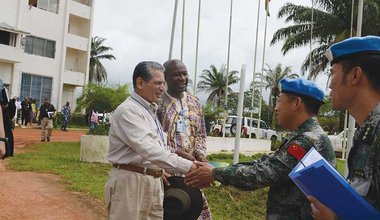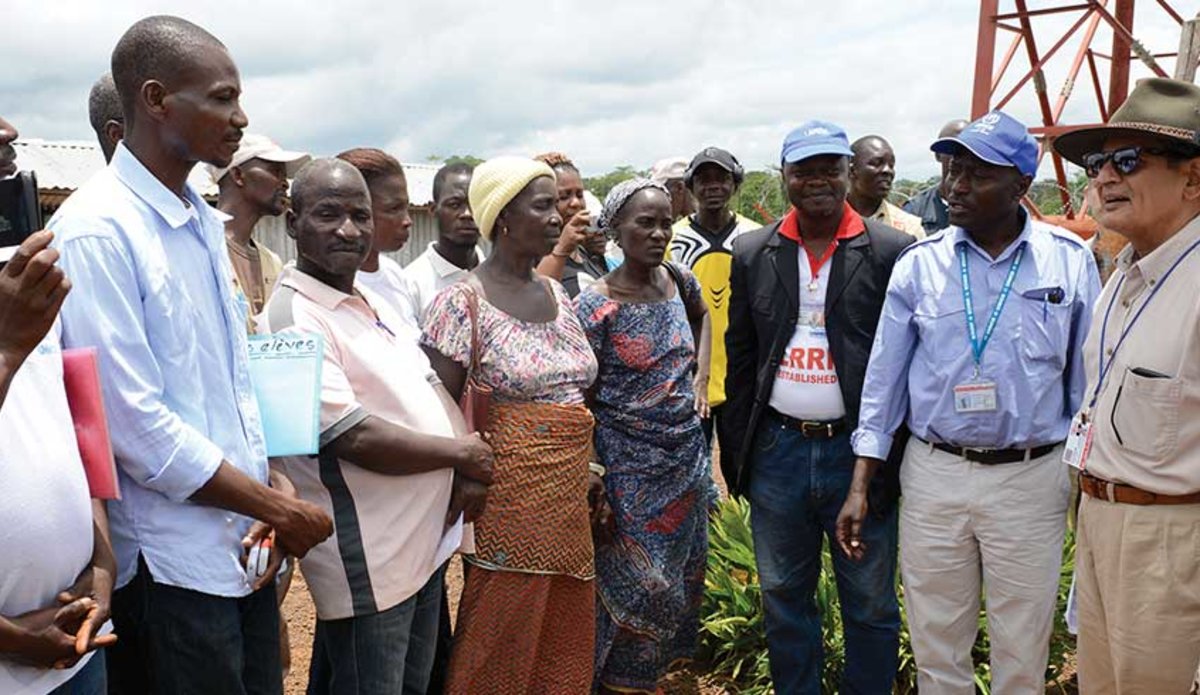Security Transition Tops New UN Envoy’s Field Visit Agenda
The Security Council decision asking the Government of Liberia to take full charge of the country’s security by the end of June next year was the major focus of the discussions between UNMIL’s new head Farid Zarif and the Grand Gedeh County authorities mid-September during his first visit to the field after assuming his new role in Liberia.
The new Special Representative of the Secretary-General (SRSG) was upfront with his other interlocutors as well on the issue of security transition when he met separately with the judiciary and representatives of the civil society.
Which nation, more than the first independent country in Africa, is better placed to demonstrate the true meaning of independence?
At each instance and in view of next year’s timelines, the Liberian officials repeatedly voiced deep concern about the capacity of security agencies in the County and Liberia at large, citing critical shortfalls in manpower and other resources.
“We doubt their capacity to fill in the gap after UNMIL leaves,” Grand Gedeh Superintendent Peter L. Solo noted, recalling how recent cases of mob violence had severely challenged the strength of security forces in the county.
Solo flagged a case as recent as the eve of Zarif’s visit, in which police units were stretched to breaking point as they scrambled reinforcements to contain a riot in the small and hard-to-reach gold mining camp of Bateljam. Meeting little resistance, the rioters had quickly overwhelmed an under-staffed depot at the camp, seizing and lynching a young man the police were holding in custody.
Troubled by an increase in these and other security threats, County officials suggested that the current support from UNMIL stay in place until the 2017 general elections, at the very least.
But the new UN envoy reminded the officials that the decision by the Security Council to scale down the Mission was irreversible.
“The timelines are serious; they’re not there for bargaining purposes,” the SRSG cautioned. However, Zarif was not without empathy for his hosts and the enormity of the challenges Liberia was up against.
“All nations do face difficult chapters in their history; chapters they can’t traverse all alone,” he admitted, but argued that it would be way too much to expect an indefinite stay of international peacekeeping forces in Liberia.
Zarif said it was the belief of the international community that Liberia was now at a point where it could stay the course on its own. He warned against slipping into a syndrome of dependence, and challenged Liberians to show the world that they could stand on their own feet.
“Which nation, more than the first independent country in Africa, is better placed to demonstrate the true meaning of independence?” he queried. With the international community expressing positive sentiment on the country’s progress, the UN envoy insisted it was about time the authorities in Liberia took the wheel and drove the rest of the way.

Zarif nonetheless recognised the need to boost the confidence he saw in the country’s leadership. At a town hall meeting with the UN fraternity in Zwedru, he indicated that the focus of UNMIL, moving on, would be the challenges that underpin the transition.
Although he lauded the Government’s decentralisation and de-concentration policies as steps in the right direction, county officials were less upbeat about the platform. They highlighted the lack of enough personnel, infrastructure and equipment required for successful implementation of the de-concentration and decentralization initiatives. But unfazed, Zarif urged UN support units to look out for, and report the gaps.
“The more we identify and understand these challenges, the more effective would be our response,” he reasoned.
 UN
UN United Nations Peacekeeping
United Nations Peacekeeping





